Toowoomba’s Alfie Bell excluded from Qld public and Catholic schools due to complex disabilities
A Toowoomba Indigenous boy with complex disabilities has no school to attend, a situation his parents say is due to serious cracks in Queensland’s education system.
Alfie Bell should be making friends and learning new things at prep right now.
But next week the five-year-old Toowoomba boy will have no school to go to, all thanks to big cracks in Queensland’s education system.
In a situation his parents and advocates have called “discrimination” by the education system, Alfie’s disabilities have been deemed too complex for mainstream institutions but not severe enough for the special schools system.
The First Nations boy has an undiagnosed set of global developmental delays, which affect his speech, development and movement due to hyper-flexible joints.
“With his joints, he struggles to just walk normally – every single step, he’s like a floppy ragdoll,” his father Nathan said.
“With his speech, we’re on about 35-40 words he knows but his understanding is incredible, it’s just the delay in his development.”
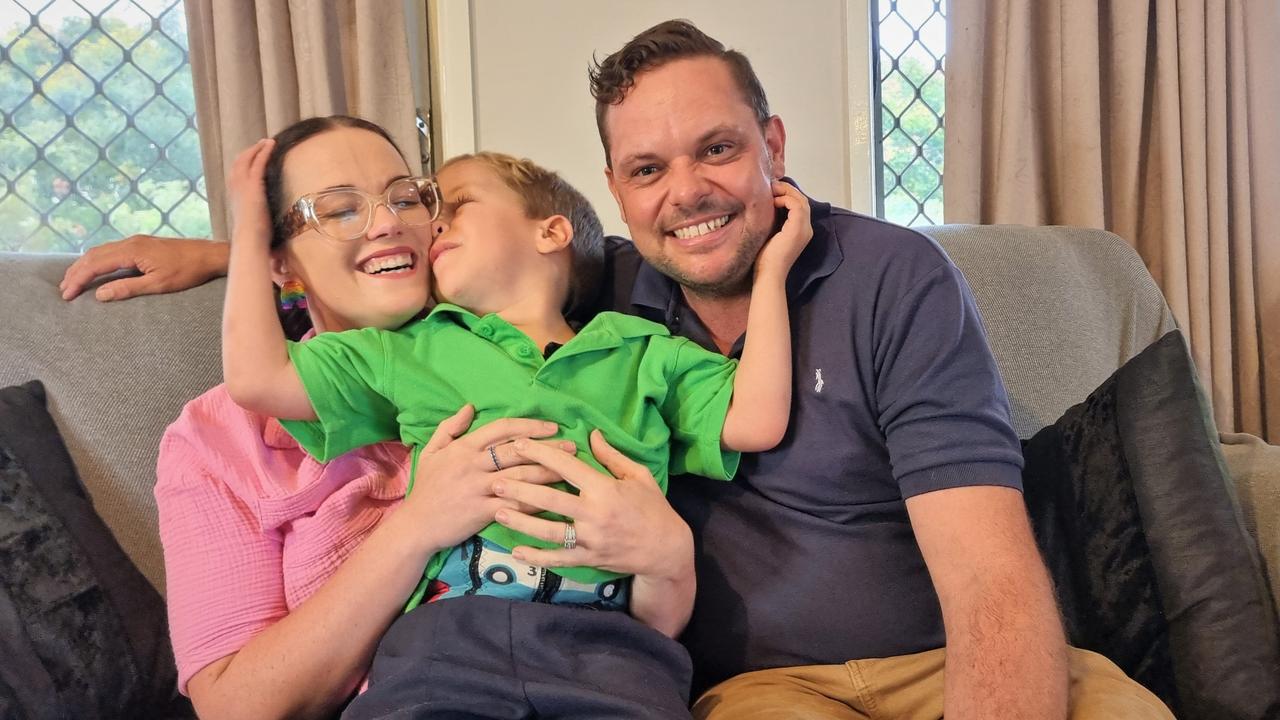
Mr Bell and wife Molly said after being declared unsuitable for special school late last year and left concerned about the level of support offered at the local public school, Alfie was offered a spot at a campus run by the Toowoomba Catholic Diocese.
His three contact days a week included one-on-one support from an “inclusion officer” who would help Alfie integrate.
But in early March that officer resigned — a fact the family only found out about weeks later.
Mr Bell said the school told the couple it was no longer able to offer schooling to Alfie.
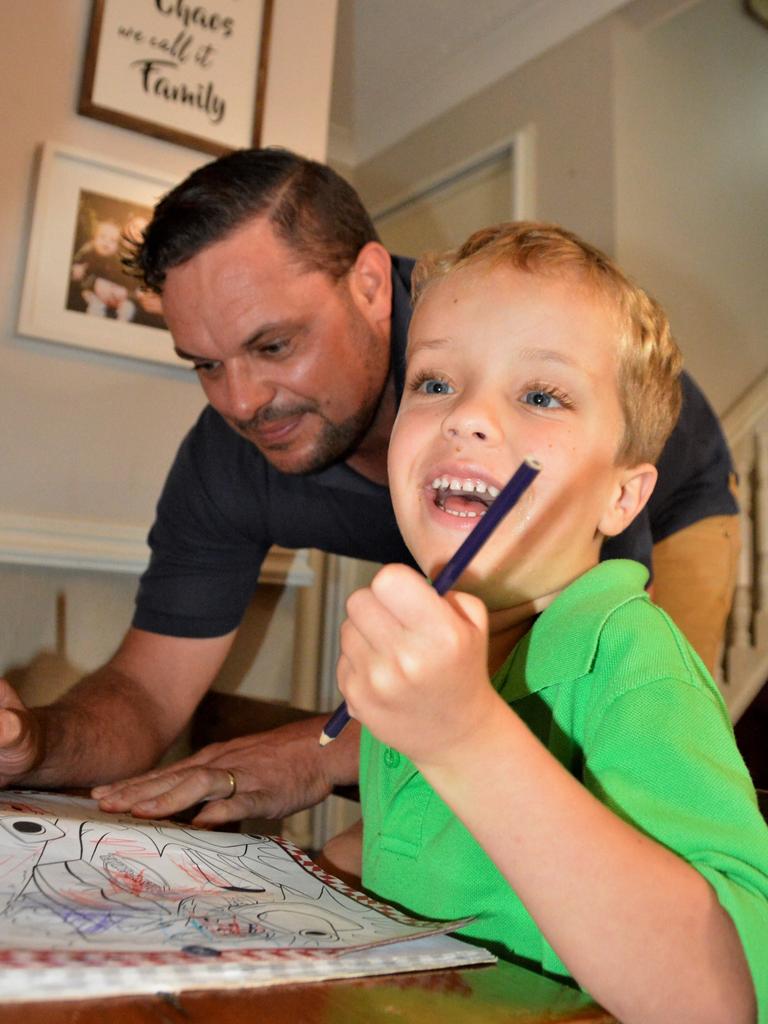
“The disappointing thing is no other strategies were offered, not even indigenous support networks were contacted,” he said.
“Without exploring other support networks and options, they just put him in the too-hard basket.”
While entry into the public school system has not been exhausted, Mr Bell said he faced the possibility of applying to the NDIS to get funding so he could become Alfie’s at-home tutor.
He said his frustration was not aimed solely at the Catholic Diocese but at the entire education system for failing to guarantee Alfie’s right to go to school.
“I do believe it’s discrimination, it’s a form of disability discrimination — it’s 2023 and we shouldn’t be having this discussion,” he said.
“My point with this is not pointing fingers, it’s making people aware of kids with disabilities and their rights.
“I know heaps of families in similar situations.”
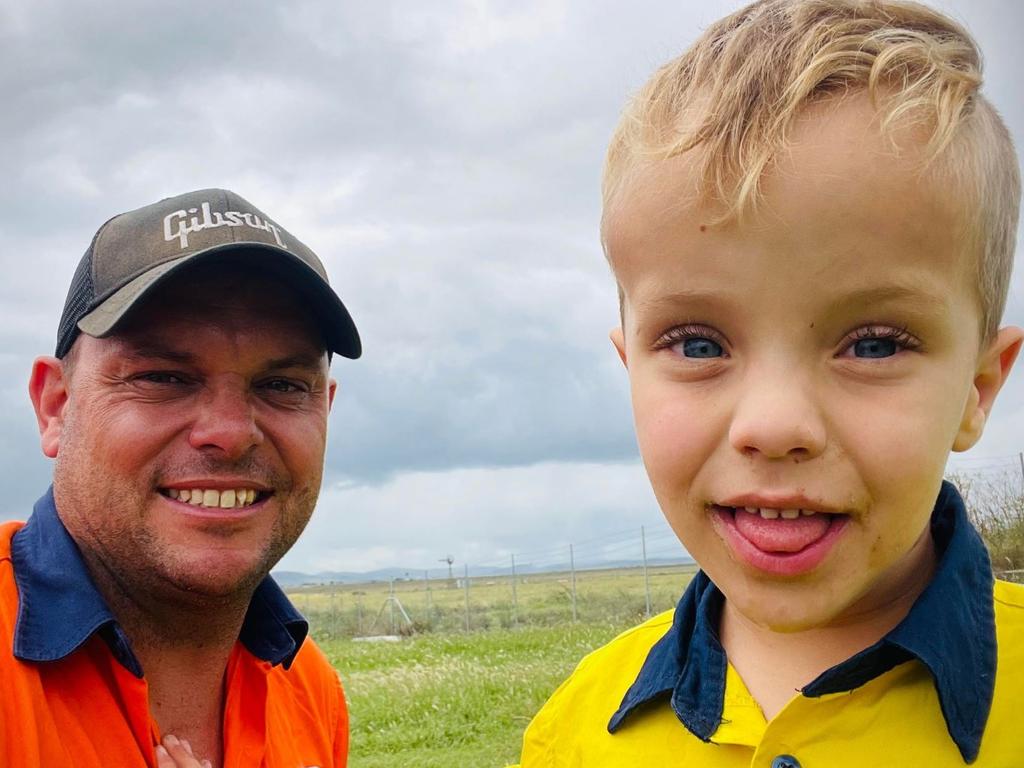
It comes as the Queensland government continues reforms relating to children with disabilities, with the new approach supposed to foster an “inclusive education system”.
Ms Bell said Alfie deserved to go to mainstream school with extra supports to integrate him, arguing such an approach was not only in-line with current desired outcomes but also the goals of programs like the National Disability Insurance Scheme.
“How is a little Aboriginal disabled boy being excluded from anything?” she said.
“The whole idea was they took special ed units out of mainstream schools because they wanted to create an inclusive environment, and I agree.
“That’s why the NDIS was made, so disabled people could be included in the community and schools.
“The point of special schools are for children who are severely disabled, and Alfie doesn’t fit that.
“So a mainstream school has to take him but we can’t get anyone to take him.”
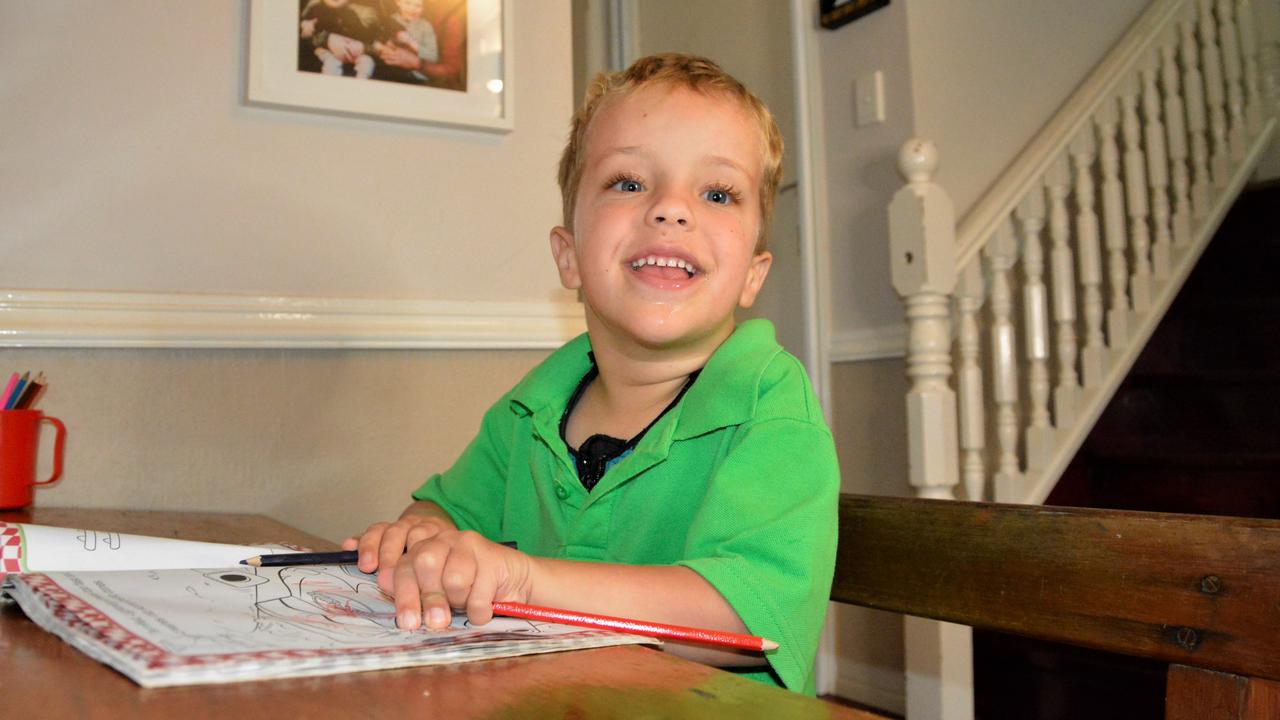
The couple said they hoped Alfie’s story would highlight the challenges many children with disabilities faced to even get an education.
“We have a support network and people in our corner, we’ve got therapists (at Montrose) and voices helping us,” Ms Bell said.
“What about the next kid that comes along and whose parents are exhausted and worn out.
“Right now, we’re pretty worn out, we’re heartbroken, we’re devastated, but we’re able to use our voices and we have to do that.”
The Diocese of Catholic Schools was sent multiple questions about Alfie’s situation, but a spokeswoman said it declined to comment citing “privacy reasons”.
A spokeswoman for the Department of Education confirmed the parents had met with the principal of a Toowoomba special school, but did not give any assurance Alfie would be admitted.
“The Department of Education is proud of its inclusive education policy which commits to enabling all students of all abilities to attend their local state school and be welcomed,” she said.
“The principal at (the special) school has met with the family regarding special school eligibility for the student.
“Parent feedback from this meeting was positive and supportive of the actions taken by the school to date.
“The department’s Darling Downs South West region, and youth engagement team will provide the family any necessary support they require for transitioning their child into a suitable school once the outcome of assessments are known.”
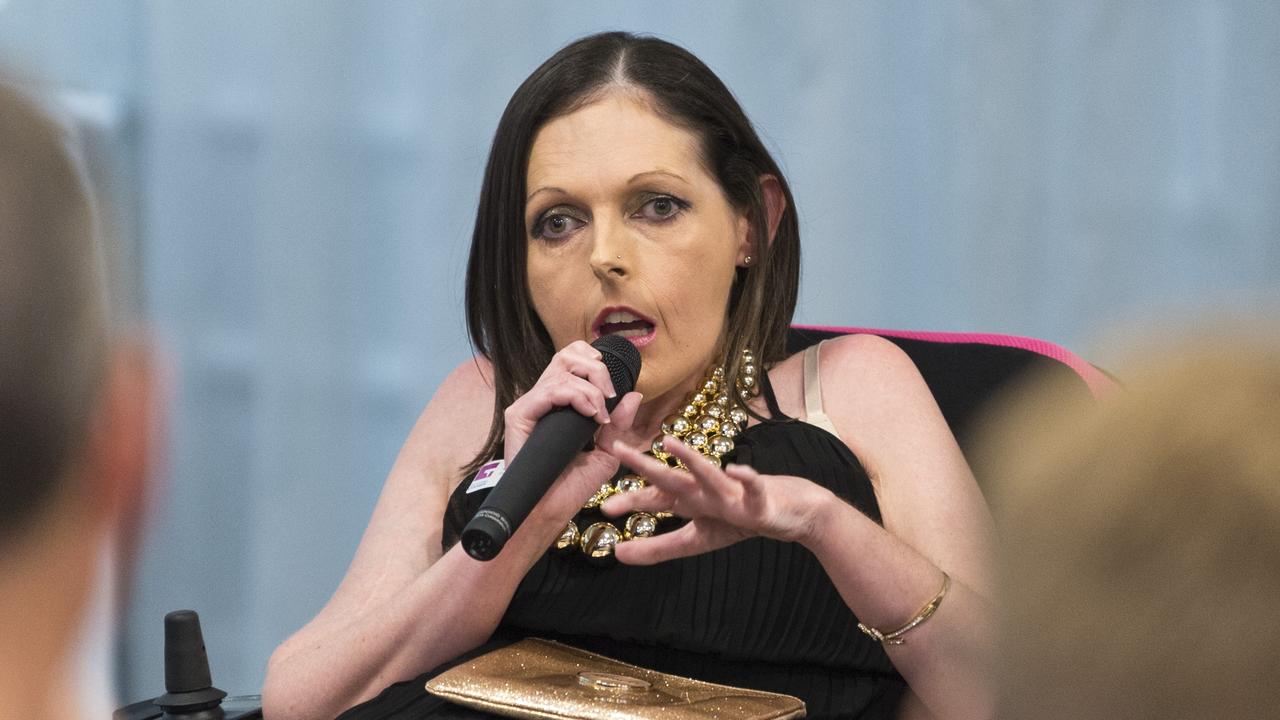
Exclusion of disabled children has ‘gotten worse’
Toowoomba disability advocate Alyce Nelligan, who has spoken with the family about Alfie’s situation, said their story was an increasingly common one across Queensland.
She said children with disabilities were being caught between the scaling back of special schools programs and the shortfall in funding for inclusion in mainstream schooling.
“In Alfie’s particular situation, schools don’t fully understand the level of support required for high-needs kids,” Ms Nelligan said.
“The right things and supports aren’t put into place and people are still ignorant of what’s needed to include kids.
“It’s critical for children with disabilities and their mainstream peers that they are included in schools.
“We’re seeing a reduction in special education programs, but not anything else replacing it.
“They’re is not enough funding or true inclusion — some schools are doing it well, but others aren’t.”
Ms Nelligan said she believed the problem was worse now than it was less than a decade ago.
“In the past two decades since I’ve been an advocate, I’ve witnessed children either changing schools or being pushed out of the system and parents having to educate at home,” she said.
“This is not getting better, I’d argue in the past five years it’s getting worse.”
She pointed the finger at both the state government and individual schools for failing to properly fund disability inclusion.
“We’re seeing people not understanding what disability is,” Ms Nelligan said.
“But what we’re seeing in terms of a lack of funding, teaching resources and training, that is a failure of the government.
“They’re not funding the education of children with disabilities and they have arbitrary rules around which disabilities get support.”
Ms Nelligan said Alfie’s lack of diagnosis would exclude him from certain disability funding.
“They don’t have the box ticked — it’s devastating, it’s heartbreaking,” she said.
“They’re little and they’re already learning society isn’t going to include them.”









